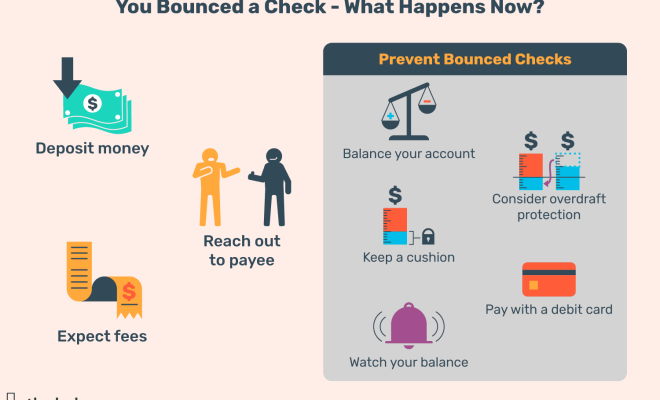How To Avoid Bouncing A Check:

1. Keep Track Of Your Checking Account Balance:
To avoid bouncing checks, regularly monitor your account balance so that you know how much money is available to cover written checks.
2. Set Up Overdraft Protection:
Sign up for overdraft protection through your bank, which links a savings account or credit line to your checking account and automatically transfers funds if you overdraw your account.
3. Use Electronic Payments:
Whenever possible, consider using electronic payment methods such as online bill pay, direct deposit, or electronic transfers. These options tend to clear faster than traditional paper checks and can help you better manage your cash flow.
4. Communicate With Payees:
If you suspect that there might not be enough funds in your account to cover a check, reach out to the payee and let them know. This transparency can help preserve relationships and prevent some of the negative consequences of bouncing a check.
In conclusion, bouncing a check can have serious financial and legal consequences. It is crucial to keep track of your account balance, manage cash flow effectively, and utilize tools such as overdraft protection to prevent check bouncing incidents. Proper financial management can safeguard your reputation and help maintain healthy relationships with individuals and business alike.






